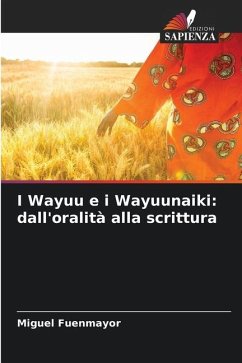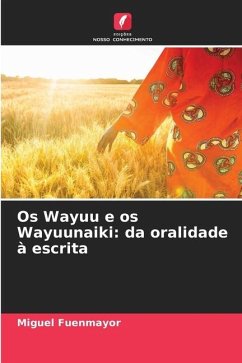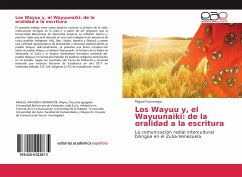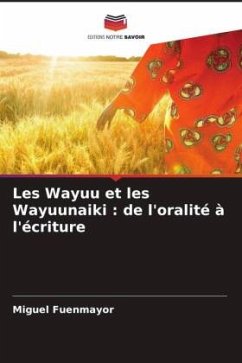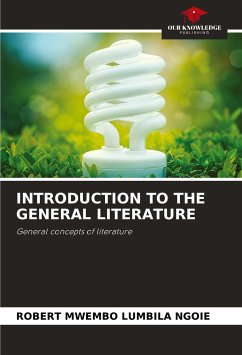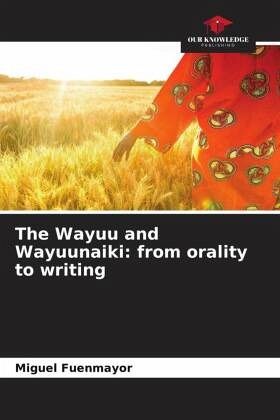
The Wayuu and Wayuunaiki: from orality to writing
Versandkostenfrei!
Versandfertig in 6-10 Tagen
27,99 €
inkl. MwSt.

PAYBACK Punkte
14 °P sammeln!
The aim of this paper is to learn about the history of intercultural bilingual radio in Zulia and from there to propose that the Bolivarian University of Venezuela sponsor its theoretical and practical reflection, given that it is located in an indigenous area (with the presence of five indigenous peoples: Añú, Bari, Yukpa, Japreria and Wayuu) and has a representative number of students and teachers belonging to the Wayuu people. In addition, a brief introduction to the Wayuu people, the Wayuunaiki language, the history of Radio in Venezuela, Zulia and the Venezuelan Guajira (ancestral terri...
The aim of this paper is to learn about the history of intercultural bilingual radio in Zulia and from there to propose that the Bolivarian University of Venezuela sponsor its theoretical and practical reflection, given that it is located in an indigenous area (with the presence of five indigenous peoples: Añú, Bari, Yukpa, Japreria and Wayuu) and has a representative number of students and teachers belonging to the Wayuu people. In addition, a brief introduction to the Wayuu people, the Wayuunaiki language, the history of Radio in Venezuela, Zulia and the Venezuelan Guajira (ancestral territory of the Wayuu people) is presented. Venezuela is home to 34 indigenous peoples distributed in 10 states. According to the results of the Population and Housing Census conducted by the National Institute of Statistics in 2011, Venezuela is home to 725,128 indigenous people (2.7% of the total population).




